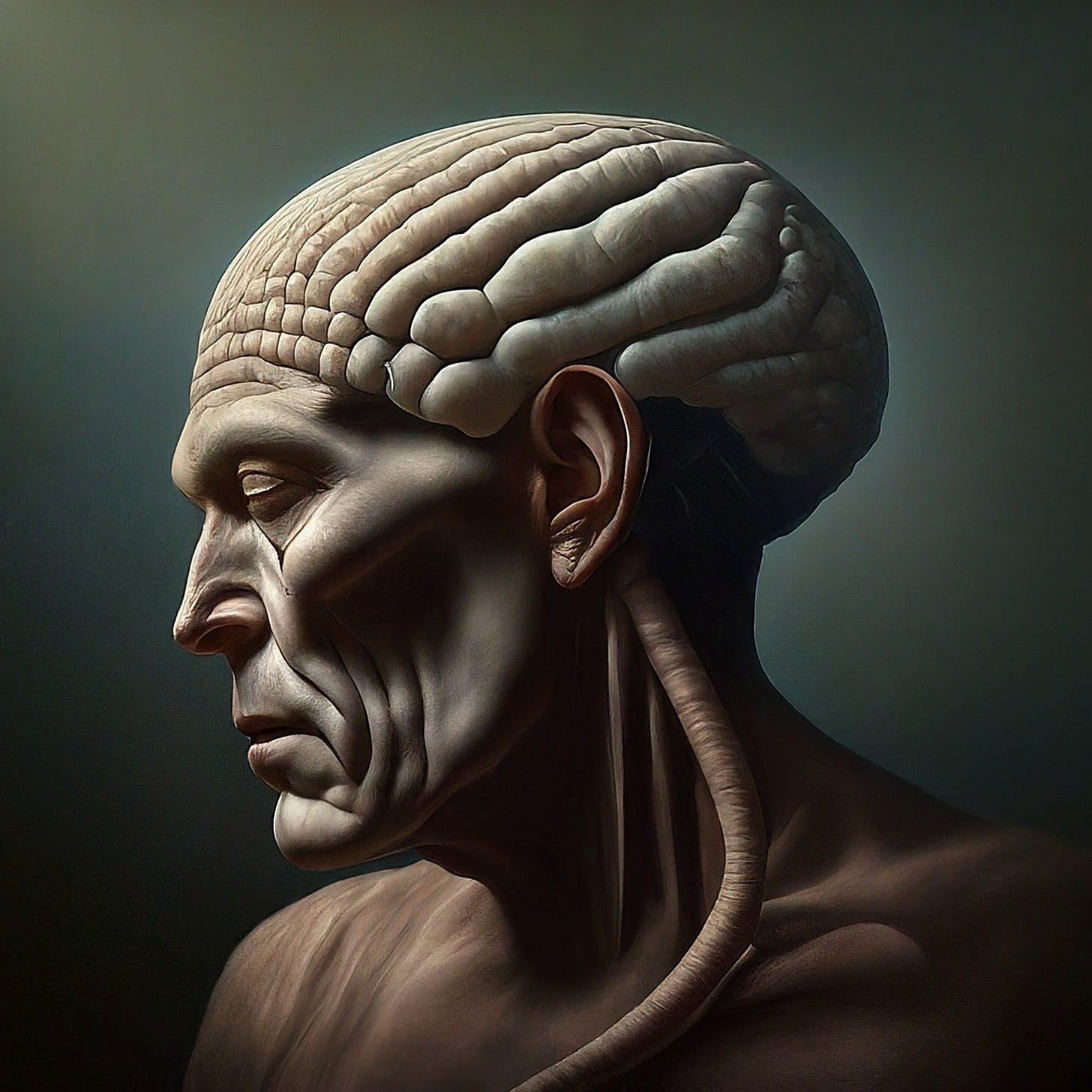Your mind is not your friend
Your beloved, highly admired mind is instead a crazy entity full of misguided beliefs, wrong perceptions, and absurd connections
The fatal moment when the philosopher Rene Descartes uttered, "I think therefore I am," still confuses people today. Descartes suggests that thinking makes homo sapiens the ultimate creation and crown jewel, but we know that the mind is the problem rather than the solution.
Our mind is a significant obstacle to experiencing the Present Moment. 'Mental Chatter' is constantly occurring in our minds. Our past or the future becomes the mind's focus, shutting out life's experience as it unfolds. The mind distracts us with a bombardment of judgments and opinions. Often, these emanations are gibberish, unclear thoughts, jumping from topic to topic without end. The mind likes to focus on the past or future, causing us to miss out on the beauty of the Present Moment.
We often identify with our thoughts, allowing them to define us, even if they are limiting. Our minds can be like a wild bull, running rampant and leaving a mess in its wake. Our ego, or sense of identity, uses the mind to create anxiety and confusion by telling false stories about ourselves. To find inner harmony, we must detach from our thoughts and see the mind for what it is - a tool for analyzing information, making decisions, and communicating with others. Being focused is critical to quieting our inner chatter. We should not judge ourselves for our thoughts but be grateful for the opportunity to understand ourselves better. By recognizing our thought processes, we can break free from the chains holding us back.
A Short Overview of what the Taoists say about "the mind."
The Taoist Tradition
In Taoist philosophy, the mind can be a significant obstacle in achieving a spiritual lifestyle. The Hua Hu Ching, a Taoist text that may have originated from Lao Tzu himself, emphasizes that the mind, with its desires, worries, and judgments, creates a veil that obscures the natural flow of the Tao. The author writes, "The entanglement of desires is the root of suffering." This view is similar to the teachings of Buddha, who also defines desire as the root of suffering.
For Taoists, limiting the power of the mind is the only way to stay on the path of Tao. An inner state of quiet receptivity allows the practitioner to untangle the web the mind weaves. Taoists are also encouraged to connect with the natural world, allowing the simplicity of nature to offset the complications of the mind. The simple flow of our natural life, the changing perceptions, and the revealing understandings will align us.
According to Lao Tzu, the mind distorts and confuses man. The human desire to know is part of his downfall. When people understand that knowledge has minimal use in spiritual matters, they try to develop specific attitudes to offset the harmful emanations of the mind. Changing the mind's predominance is difficult, as impulses can come from unknown sources.
We start reducing the power of the mind by trying "Not To Do," or at least we try to delay specific programmed reactions that a "normal mind" displays in learned situations.
"Avoid daydreaming and allow your pure original insight to emerge. Quiet your emotions and abide in serenity." Lao Tzu
The Taoist understands that the mind always looks for things to attach to. When one scrambles to reach inner peace, one often loses it by doing so. General cultivation of mind, body, and spirit is required.
People always fall prey to spiritual superficialities. Living a simple and quiet life, free of concepts and beliefs, is the beginning of embodying the meaning of life.
Lao Tzu also advises us not to identify with worshiping ideas and people:
"Don't go crazy with the worship of idols, images, and ideas; this is like putting a new head on top of the head you already have."
Lao Tzu asks the reader an important question: "Do you wish to free yourself of mental and emotional knots and become one with the Tao?"
He describes two paths available to us, although the second way, the path of denial, is more suitable for a monk living in seclusion than for a modern man. Lao Tzu names the first path, the path of Acceptance:
"Affirm everyone and everything. Freely extend your goodwill and virtue in every direction, regardless of circumstances. Embrace all things as part of the Harmonious Oneness, and then you will begin to perceive it."
Realize the mind's constant desires and analytical thinking as obstacles to experiencing the Tao. The goal is to quiet the mind and achieve a state of effortless flow.
Mind and ego work together to derail the harmony of one's soul by making one's perception and thoughts into a fortified identity, allowing the inflation of arrogance, vanity, and resentment.
From a particular viewpoint, the mind is a neutral entity. The ego is behind when thoughts and perceptions enforce the separateness between people, the hardship of life, and the vicious cycle of competition and defeat.
To quieten the mind
The mind is bound to create an endless stream of thoughts, judgments, and perceptions, which leads to identification and attachment. Reality is distorted, and the light of Higher Awareness generally blends out.
The ego and mind also create the illusion of a distinct, separate physical body. The goal is to realize the oneness of everything and transcend the limitations of the individual self.
We need to find a technique that helps us weaken the mind's power. Whatever you do, realize that at the beginning, you will be overwhelmed by the power of your mind, catapulting you with thoughts during meditation, walking in the forest, or riding a bicycle along a river. Realize that this is good and necessary. Only when you realize how strong and devastating the mind holds us hostage will something change.




